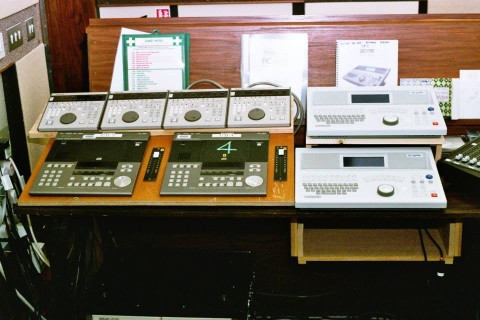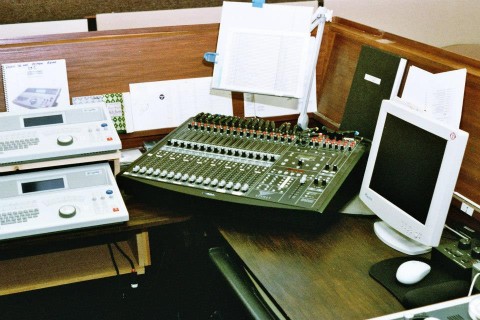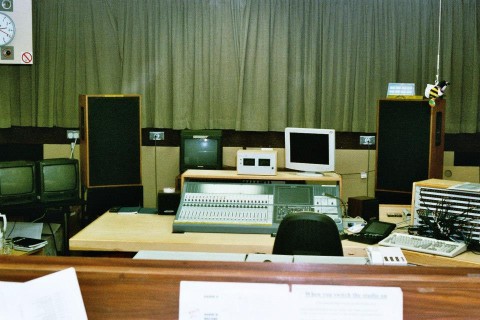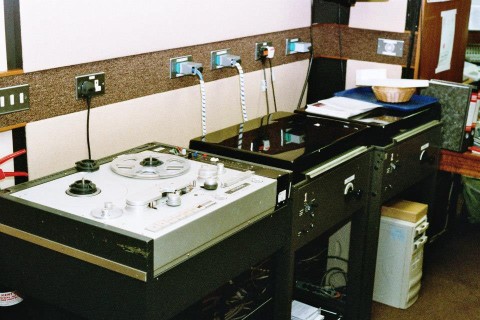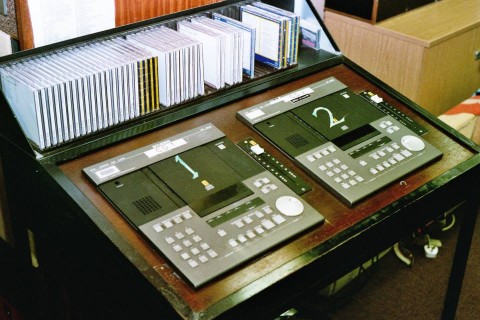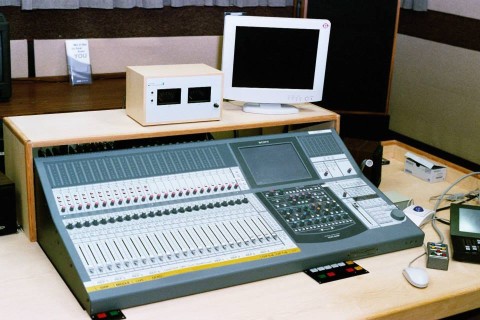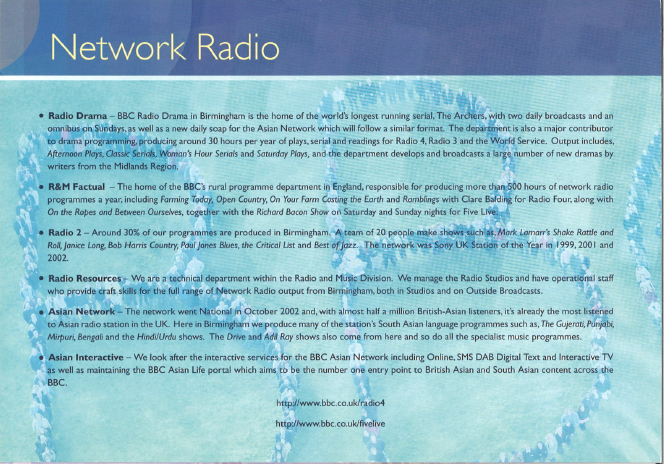Benedict Peissel is a Dubbing Mixer who specialises in post production audio for television across a wide range of genres (Factual, Drama, Animation & Documentary).
Between January 1985 – 1994 he was an Audio Assistant at BBC Pebble Mill and then from 1994 – 1996 he progressed to the position of Audio Supervisor and from 1996 to the present day as Dubbing Mixer (latterly as a freelancer).
In the following transcription, he looks back on his time at Pebble Mill and how it prepared him for a career in audio production…
(Sam Coley – Birmingham City University)
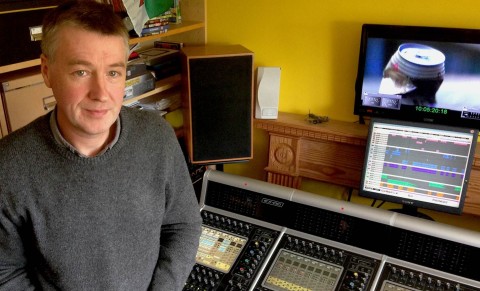
Ben Peissel, with mixing desk. Photo by Sam Coley, no reproduction without permission
“I started at the BBC 30 years ago as a trainee audio assistant completing a three year apprenticeship. During that time, I worked in radio and television studios, radio and television outside broadcasts, location sound recording and TV post production. So, wherever there was a need for sound in a production, as a trainee, I would work on it – and that gave me a fantastic grounding to appreciate sound in all its diverse wonders!”
“Pebble Mill in Birmingham was pretty much unique amongst all the BBC bases, in that the Audio department serviced both radio and TV, whereas in most other parts of the BBC you were compartmentalised into television, radio, location or OBs. That notion of being tied to one element, whether it was radio or TV, seemed far too restrictive. At Pebble Mill the idea was that if you worked across all of the craft areas, your spread of experience meant you could be more flexibly deployed.”
“Some people would say you ended up as a ‘Jack of all trades and master of none’! I actually think the opposite, it was handled very well in the sense that, at a junior level you ended up with a really good grounding across all the genres, but as you progressed, you might start to specialise in two or three areas. In my case, TV and radio outside broadcasts and post production sound, became my forte. For other people, perhaps they would specialise purely in radio drama work, or documentary work, or light entertainment TV work. There was enough scope for people to have specialisms, but also, if the need arose, to jump in and still do the basics, like clip a microphone, on somebody.”
“I think I was very fortunate to have landed up in a job like that, in a culture that fostered innovation and collaboration across the board. Pebble Mill, the people and the place, thrived on the cross-fertilisation between radio and TV, and vice versa – and in fact neither radio or TV was seen as better than the other, they were just seen as interlocking parts of a bigger jigsaw puzzle.
(Benedict Peissel – Dubbing Mixer)
The following comments were left on the Pebble Mill Facebook page:
Carolyn Davies: ‘I’m proud to have been a member of Pebble Mill’s Audio Unit, best training ground and best variety of work in the country…..sentiments echoed completely here…hope you are well Ben!’
Pete Simpkin: ‘I agree that the wider the early experience the better the basic training. I was lucky in the 1960s to be a member of one of the early ‘sub-region’ units…we were the original multi-taskers. We were engineers by definition but handled all aspects of audio and video from studio camera ops to OBs, area VHF news broadcasts, telecine to audio mixing,film processing and at the start even changing the toilet rolls in the loos! Didn’t get far with the last one there but I enjoyed every minute and with all the knowledge was able to transfer eventually to Local Radio Production where the multi tasking went on!’
